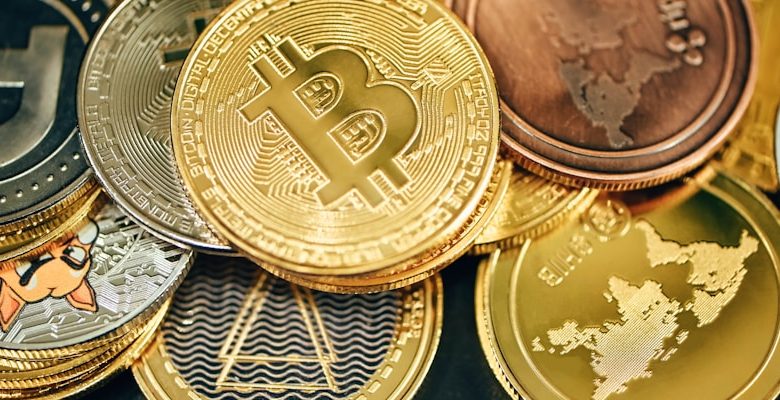Beginner’s Guide to Decentralized Finance (DeFi)

- Understanding the Basics of DeFi
- How DeFi is Revolutionizing the Financial Industry
- The Benefits of Using Decentralized Finance
- Key Concepts and Terminologies in DeFi
- Popular DeFi Platforms to Get Started With
- Risks and Challenges of Engaging in Decentralized Finance
Understanding the Basics of DeFi
Decentralized Finance or DeFi is a revolutionary concept in the world of finance that aims to provide financial services without the need for traditional intermediaries such as banks. DeFi platforms leverage blockchain technology to create an open and transparent financial system that is accessible to anyone with an internet connection.
One of the key principles of DeFi is the concept of decentralization, which means that no single entity has control over the network. Instead, transactions are verified by a network of users, making it more secure and resistant to censorship. This peer-to-peer nature of DeFi eliminates the need for trust in third parties and reduces the risk of fraud.
Through DeFi platforms, users can access a wide range of financial services, including lending, borrowing, trading, and more. Smart contracts, which are self-executing contracts with the terms of the agreement directly written into code, automate these processes, reducing the need for intermediaries and streamlining transactions.
Overall, DeFi offers a new way of interacting with financial services that is more inclusive, efficient, and transparent. By understanding the basics of DeFi, individuals can take advantage of the opportunities presented by this innovative technology and participate in the future of finance.
How DeFi is Revolutionizing the Financial Industry
Decentralized Finance, or DeFi, is a rapidly growing sector within the financial industry that is revolutionizing the way we think about traditional banking and investing. By leveraging blockchain technology, DeFi platforms are able to offer a wide range of financial services without the need for intermediaries like banks or brokers.
One of the key features of DeFi is its focus on decentralization, which means that these platforms are not controlled by any single entity. Instead, they operate using smart contracts, which are self-executing contracts with the terms of the agreement directly written into code. This eliminates the need for trust between parties and reduces the risk of fraud or manipulation.
Another important aspect of DeFi is its accessibility. Unlike traditional financial services, which can be exclusive and require a minimum amount of capital to participate, DeFi platforms are open to anyone with an internet connection. This has the potential to democratize finance and provide opportunities for individuals who were previously excluded from the traditional banking system.
Furthermore, DeFi offers a wide range of services, including lending, borrowing, trading, and asset management, all of which can be accessed 24/7 from anywhere in the world. This flexibility and convenience are attracting a growing number of users who are looking for alternatives to traditional financial institutions.
The Benefits of Using Decentralized Finance
Decentralized finance, or DeFi, offers numerous benefits to users compared to traditional financial systems. One of the main advantages of DeFi is its accessibility. Anyone with an internet connection can participate in DeFi, without the need for a bank account or other third-party intermediaries.
Another benefit of using DeFi is the transparency it provides. All transactions on DeFi platforms are recorded on a public blockchain, making it easy to verify and audit. This level of transparency can help build trust among users and reduce the risk of fraud.
Additionally, DeFi offers users greater control over their assets. In traditional finance, users must rely on banks or other financial institutions to manage their funds. With DeFi, users can maintain full control over their assets and execute transactions directly on the blockchain.
Furthermore, DeFi platforms often offer lower fees compared to traditional financial services. By cutting out intermediaries, DeFi can reduce costs for users and provide a more cost-effective way to access financial services.
Overall, the benefits of using DeFi are clear: accessibility, transparency, control, and cost-effectiveness. As the DeFi ecosystem continues to grow and evolve, these advantages are likely to become even more pronounced, making DeFi an increasingly attractive option for individuals seeking financial services outside of traditional banking systems.
Key Concepts and Terminologies in DeFi
In Decentralized Finance (DeFi), there are several key concepts and terminologies that are important to understand in order to navigate this rapidly growing sector. One crucial concept is “Smart Contracts,” which are self-executing contracts with the terms of the agreement directly written into code. These smart contracts run on the blockchain and automatically enforce the terms of the agreement, eliminating the need for intermediaries.
Another essential term in DeFi is “Liquidity Pool,” which refers to a pool of tokens locked in a smart contract that users can trade against. Liquidity providers contribute funds to the pool and earn a portion of the trading fees as a reward. This mechanism helps to ensure that there is always liquidity available for trading different assets.
Moreover, “Decentralized Exchanges (DEXs)” are platforms that allow users to trade cryptocurrencies directly with one another without the need for a centralized intermediary. DEXs operate using smart contracts and provide users with more control over their funds and privacy compared to traditional exchanges.
Furthermore, “Yield Farming” is a strategy used in DeFi to earn rewards by providing liquidity to various protocols. Users can stake their tokens in specific pools and earn interest or additional tokens as a reward for their participation. Yield farming has become increasingly popular in the DeFi space due to the high potential returns it offers.
Overall, understanding these key concepts and terminologies in DeFi is crucial for anyone looking to participate in this innovative and rapidly evolving sector. By familiarizing yourself with these terms, you can make more informed decisions and take advantage of the many opportunities that DeFi has to offer.
Popular DeFi Platforms to Get Started With
For those looking to dip their toes into the world of Decentralized Finance (DeFi), there are several popular platforms available to get started with. These platforms offer a range of services, from lending and borrowing to trading and yield farming.
- Compound: Compound is a decentralized lending platform that allows users to lend out their crypto assets and earn interest on them. Users can also borrow assets by providing collateral.
- Uniswap: Uniswap is a decentralized exchange (DEX) that allows users to trade various cryptocurrencies directly from their wallets. It uses an automated market-making system to provide liquidity for trading pairs.
- Aave: Aave is a lending and borrowing platform that allows users to earn interest on their crypto deposits or borrow assets by providing collateral. It also offers flash loans, which are uncollateralized loans that must be repaid within the same transaction.
- MakerDAO: MakerDAO is a decentralized autonomous organization (DAO) that governs the stablecoin Dai. Users can mint Dai by locking up collateral in the form of ether (ETH) and other assets.
- SushiSwap: SushiSwap is a decentralized exchange (DEX) that is based on the Uniswap protocol. It offers additional features such as staking and yield farming to incentivize liquidity providers.
These platforms are just a few examples of the many DeFi projects that are revolutionizing the financial industry. By exploring and experimenting with these platforms, newcomers can gain a better understanding of how decentralized finance works and how they can participate in this exciting new space.
Risks and Challenges of Engaging in Decentralized Finance
Engaging in decentralized finance (DeFi) can offer numerous benefits, but it also comes with its fair share of risks and challenges that individuals should be aware of before diving in. One of the main risks of participating in DeFi is the potential for smart contract vulnerabilities. These vulnerabilities can be exploited by bad actors to steal funds or manipulate the system for their own gain. It is crucial for users to thoroughly research the projects they are investing in and understand the smart contracts involved to mitigate this risk.
Another challenge of DeFi is the lack of regulatory oversight. Unlike traditional financial systems, DeFi operates in a decentralized manner without the involvement of centralized authorities. While this can offer greater privacy and autonomy, it also means that there are fewer safeguards in place to protect users in case of fraud or disputes. Users should proceed with caution and only invest funds that they can afford to lose in the event of unforeseen circumstances.
Furthermore, the fast-paced nature of the DeFi space can make it difficult for beginners to keep up with the latest trends and developments. Projects in the DeFi sector are constantly evolving, with new protocols and technologies being introduced regularly. Staying informed and educated about these changes is essential to make informed investment decisions and avoid falling victim to scams or Ponzi schemes that may emerge in this rapidly growing industry.
In conclusion, while decentralized finance offers exciting opportunities for financial innovation and empowerment, it is not without its risks and challenges. By approaching DeFi with caution, conducting thorough research, and staying informed about the latest developments, individuals can navigate this space more effectively and make the most of the potential benefits it has to offer.



